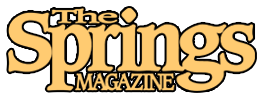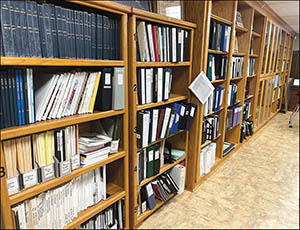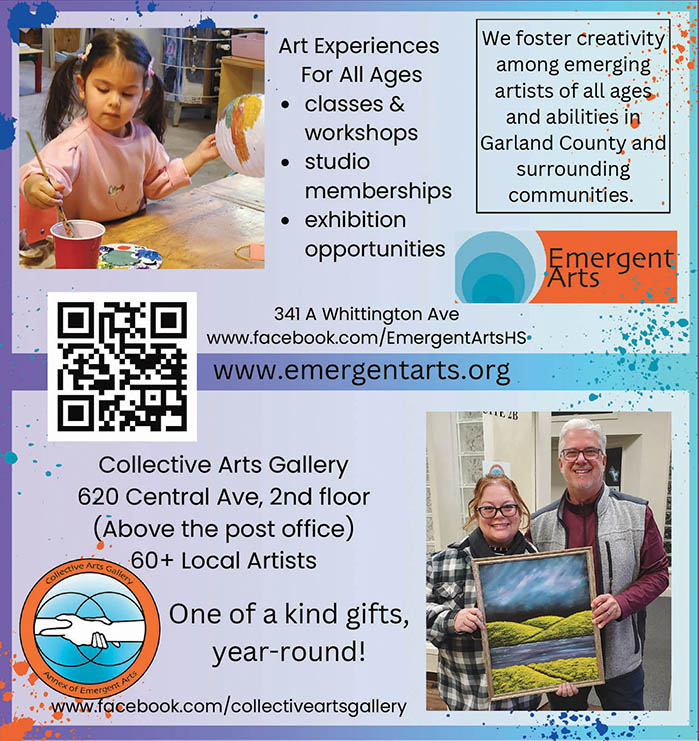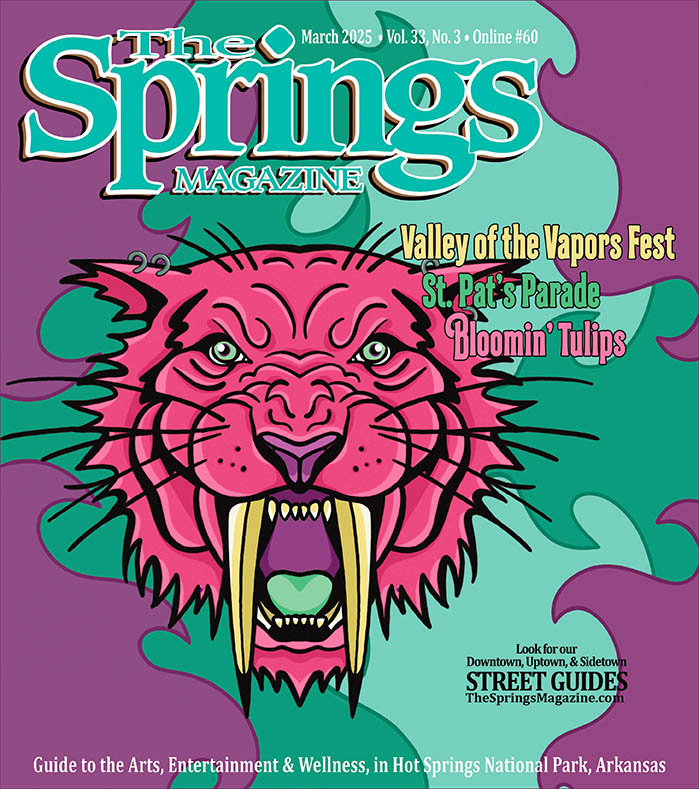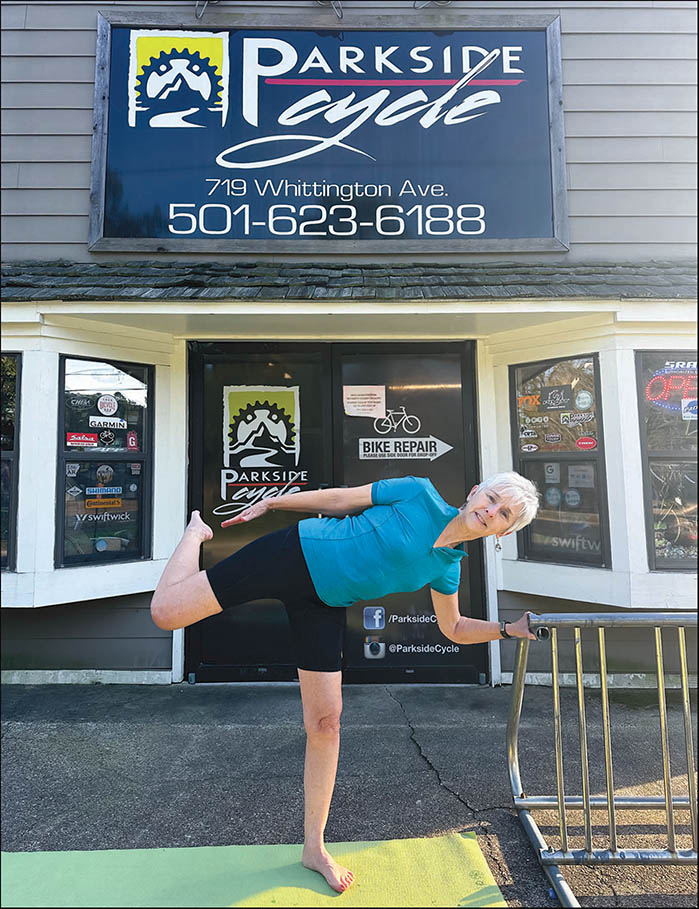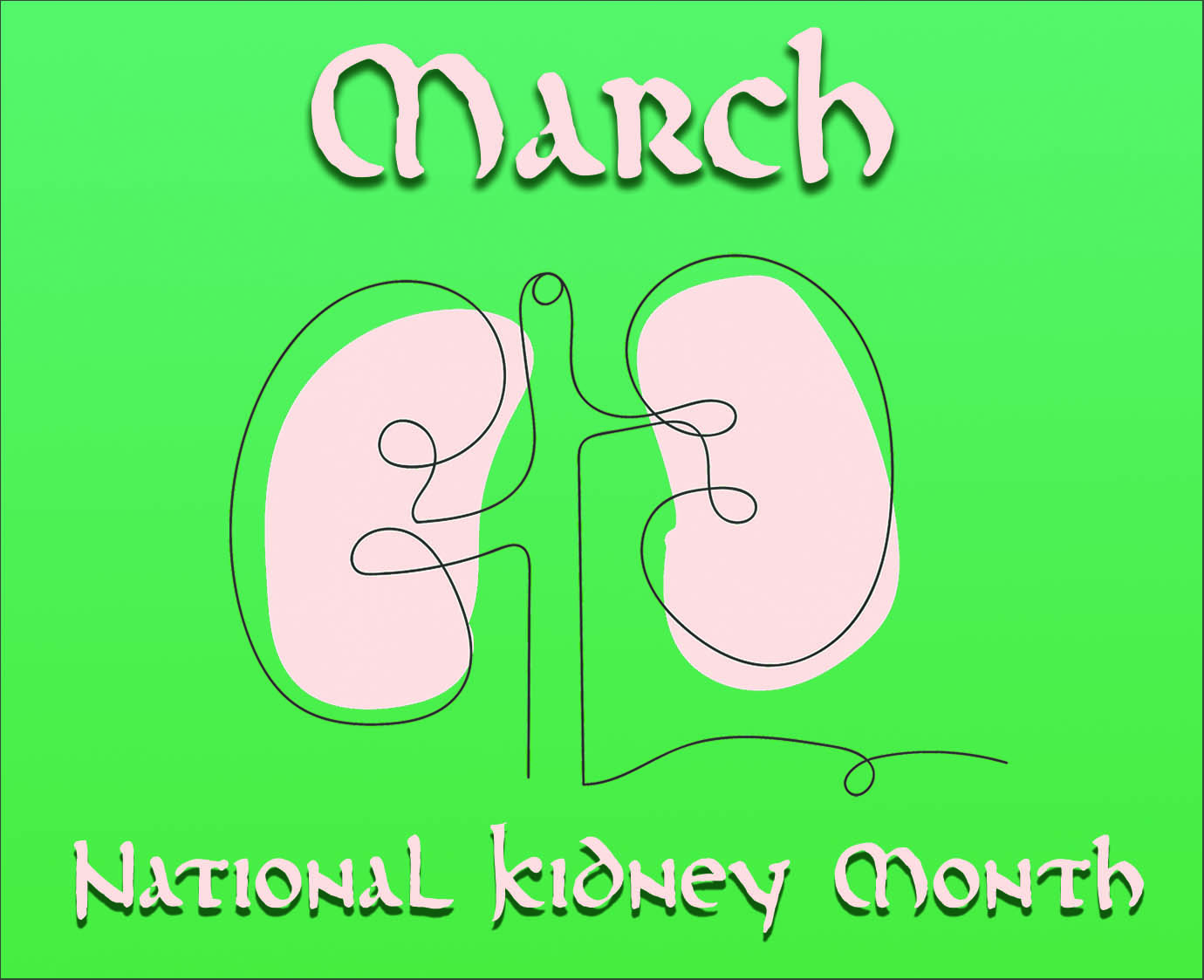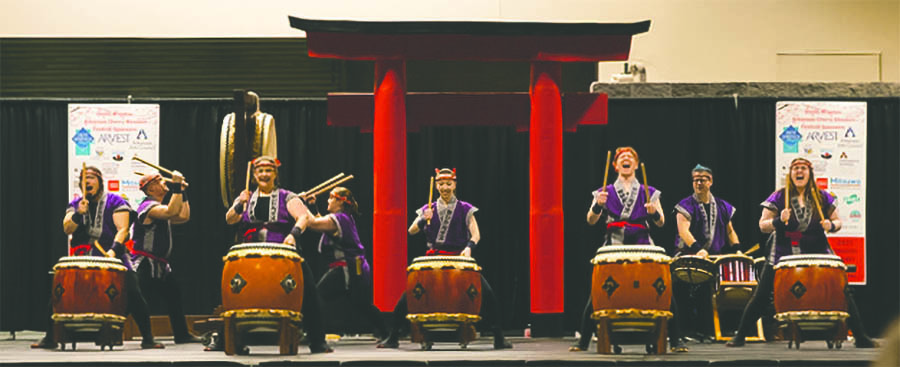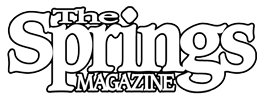In addition to data collections, visitors can browse hundreds of reference books in the GCHS lobby.
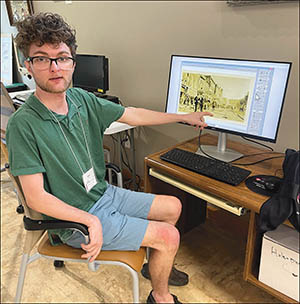
Volunteer Ethan Littler, a college student with an interest in politics, browses one of several
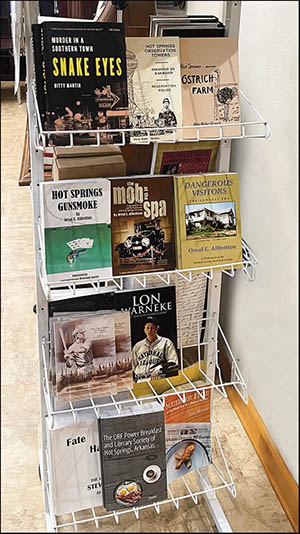
GCHS is donation-driven and sustained. Local author’s books are for sale in the lobby.
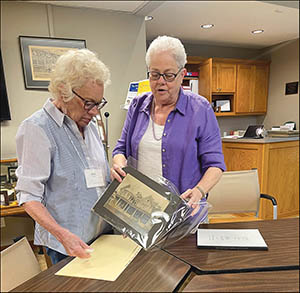
Director Liz Robbins (r) works to identify the photograph of a Hot Springs home. Volunteers often help identify, scan, and digitize donated photographs.
By Lana Pierce
Sometime in the late ‘80s, as a young teen browsing a section of Hot Springs Creek behind Summer Street, I stumbled across some horseshoes, a spur, and a piece of metal I was pretty sure had something to do with horses. I carried the few rusty relics to our Grandpa “Pa” Halsell’s home nearby.
He and his sister, “Aint” Inez Cline, described the creek’s early days as a stopping point for early travelers, who found rest and water for their horses. Inez, by then a well-respected historian of this town, had devoted much of her life to preserving such facts. Until that day, I did not realize just how much this small and feisty woman knew.
In fact, only years later did I fully appreciate her expansive contribution to the preservation of Spa City facts, fictions, and lore for many years. After reading everything she’d published, I began to consume things written by her like-minded friends: Bobbie McClane, Marcus Phillips, and Mary Hudgins. They – and the society to which they dedicated their lives, the Garland County Historical Society (GCHS) – are recognized statewide and nationwide as a paragon of collections.
Established in 1960, the GCHS is located in a former doctor’s office at 328 Quapaw, where volunteers work tirelessly to gather and preserve the history of Garland County and its citizens, past and present. In a recent tour of the Society building, I met with Director Liz Robbins, a woman clearly happy in her work preserving this local history.
Liz floated happily from room to room, showcasing an impressive room of vertical files, collections of thousands of photographs, and one room filled with tall, movable shelves stocked with irreplaceable documents, images, newspapers, and more. In turning one corner, I was met with the smiling face of “Aint Inez,” preserved in several framed photographs hanging on one of the office walls. (She would be ecstatic today to see how the Society has expanded over the years.)
Browsing the rooms of the Society building, I felt reassured that all the small, local treasures I’ve collected since my teenage years, are destined for a safe place someday, accessible and protected in the city I love. In pondering my own future donations to the Society, I asked Liz what people donate, what the Society needs, and what it doesn’t need.
Always, the Society accepts monetary donations from both businesses and individuals. Depending on the membership level, members receive between one and ten copies of the group’s award-winning journal, The Record, which has been published yearly since 1960 and is available for $25.
However, a membership is not necessary to make a one-time donation. While money is helpful, the donation of time as a volunteer is also welcome. Volunteer tasks range from clipping newspapers to computer work to interactions with visitors.
The Society exists and continues to grow based on community donations, publication sales, member dues, and corporate memberships. Liz explained that the donations “allow GCHS to continue its work, and, since it is not a government program but a 501(c)3 nonprofit entity, donations are tax exempt.” These can be made through the website, via mail, or in person. (Contact information is listed at the end of this article.)
The current item most sought? Rural yearbooks! The Society seeks to flesh out its collection of school annuals from outlying districts, especially Lakeside, Lake Hamilton, Jessieville, and Fountain Lake. Postcards, photographs, maps, menus, and other ephemera are always appreciated. “Who knows what people might have?” Liz notes. If it relates to Hot Springs/Garland County and can be scanned, it won’t hurt to call and ask a volunteer if it’s needed for the Society’s archive. If you’re not ready to part with your items, you might consider briefly loaning them to the GCHS for digitization.
In addition to the director, 26 volunteers work to collect, catalog, digitize, identify, and preserve items that might otherwise disappear. In the past two decades, the Society has used donations and grants to improve the building, its size and storage capacity, and its fire protection system. (The system does not use water or chemicals; essentially, it “starves” a fire by removing room air.)
In the lobby, the Society makes available tables and reference materials. Want to know where so-and-so is buried? Need to lay eyes on the oldest city maps? Want to lose a lunch hour reading first-hand accounts from long-gone citizens? This is your place!
In addition to print editions of books and reference material, the lobby offers the use of several databases, access to thousands of digitized photos dating back to the 1800s, a photo enlarger, and even microfilm. (Depending on the scope and nature of your inquiry, Liz suggests calling the Society before your visit.)
As we completed the tour, Liz was drawn to a visitor with two oversized scrapbooks folded in his arms. The books held years’ worth of clippings and photos of Hot Springs beauty pageants. “This is what happens so often,” Liz pointed out, clearly excited about this unexpected donation. Brushing my fingers across the vintage fabric of the scrapbooks I wondered who had taken so much time to compile, clip, and curate the books.
The books reminded me of Inez Cline’s living room and its leaning stacks of journals, newspapers, and photos. Indeed, Garland County families excel in collecting their passions into their own unique collections. For me, it’s Ouachita Avenue and Hollywood Cemetery. For you, it’s likely something else entirely. But for the Historical Society, whose mission is to preserve these well-loved treasures and make them accessible to current and future generations, it is the sum of our collections and the consistency of volunteer efforts that have allowed our city’s society to become the standard bearer.
Lana Pierce is a captain with the North Little Rock Fire Department and owner of The RetroFit. Under a pen name, she has been published in over 200 books, journals, and newspapers.
Quick Guide: How You Can Help
Money: Donate or Purchase Private or Corporate Memberships
Time: Volunteer to preserve and catalog our Hot Springs/Garland County History
Items: Consider donating area-specific ephemera, yearbooks, photos, maps, etc.
Loans: Consider loaning items for scanning and digitizing. (Volunteers are well-trained in proper handling of old and fragile items.)
CONTACT INFO:
501-321-2159
gchs@hotsprings.net.
www.garlandcountyhistoricalsociety.com.
Facebook: GarlandCountyHistoricalSociety.
Mon-Fri 9 AM – 1 PM
GCHS is ADA-accessible. Service animals permitted.
